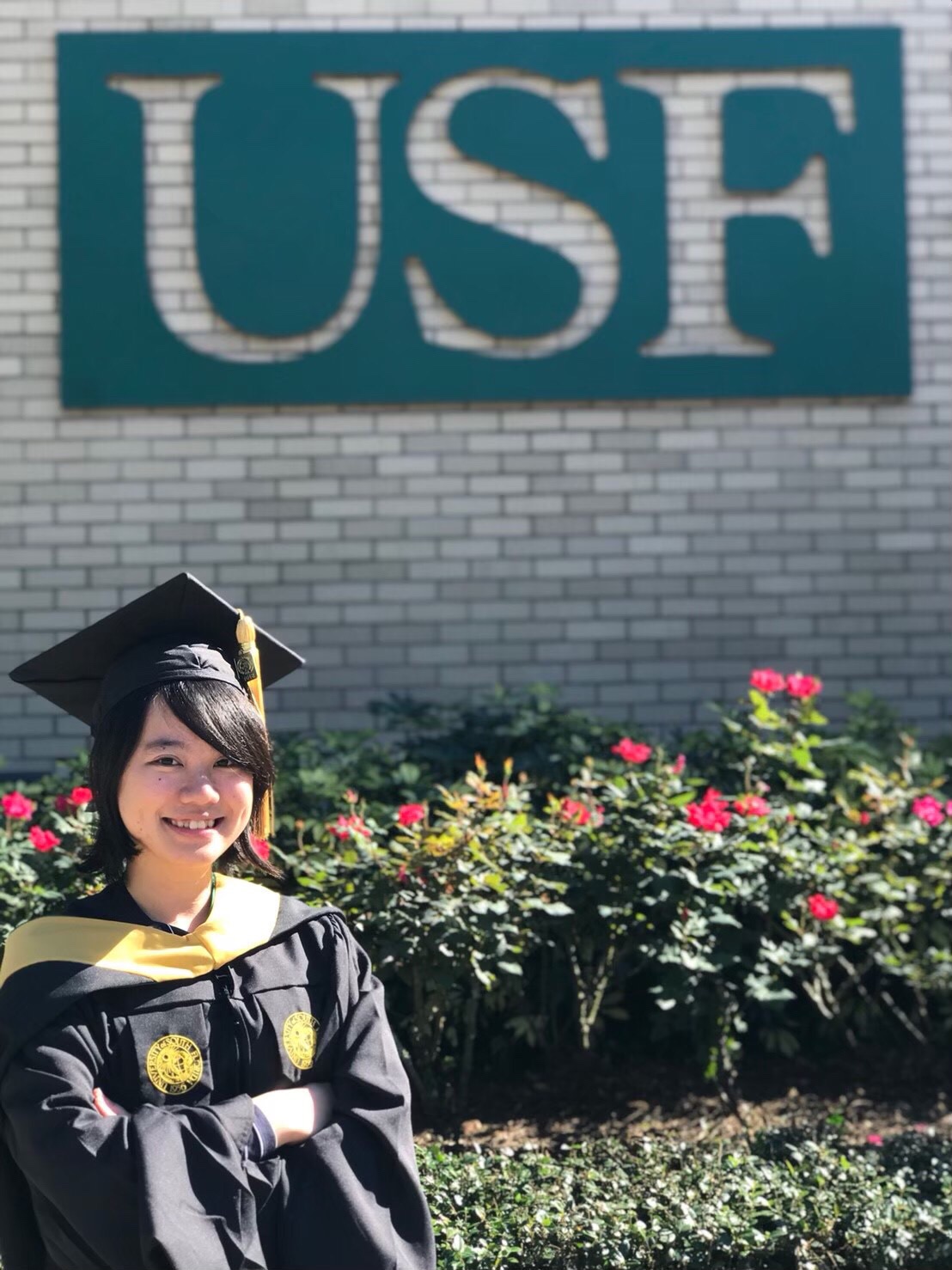Mentoring incarcerated girls: An-Chi Liu’s compassion

SPECIAL TO THE ORACLE/AN-CHI LIU
An-Chi Liu thought she was volunteering to help troubled youth discover their passions and carve out a future.
But through the mentorship, she ended up doing exactly that for herself.
Liu is a recent graduate from USF with a master’s degree in rehabilitation and mental health counseling. Upon graduation, she had goals to put her knowledge of counseling to good use — that she did.
Liu soon discovered a volunteer opportunity in the Steadfast Mentoring Program.
The Steadfast Mentoring Program allows adult volunteers to mentor incarcerated youth (ages 12-18). The program offers young men and women the social support they need to pursue post-secondary education and residential living.
Two buildings, or correctional facilities, house what the program labels as “at-risk” youth, with one building for boys and one for girls.
Volunteers are paired with a girl or boy to mentor for a long period of time. Liu served as a mentor to two girls at their facility.
Even after the mentee is discharged from the correctional facility, the program expects volunteers to keep in contact with their mentees for three months in order to instill a lasting relationship. This three-month window helps the mentor maintain a positive influence on the youth’s character development.
Liu made it clear that her role was more than just being a mentor.
“It’s literally like friendship,” said Liu, smiling. “The thing that you provide them with is therapeutic. They’re not allowed to have any outside contact except for their parents. Not even their siblings.”
Liu recounts how the girls in the facility would mention how much they missed their brothers and sisters. But because Liu was there for these girls, even multiple days a week (which is more than the program requires), many girls felt like they had a big sister to look up to, helping them feel less alone.
The alumna’s days were filled with laughter, card games and arts and crafts. Through Liu’s spirit, she helped the girls deal with various problems in peaceful, constructive ways.
“The way they act can be pretty aggressive … They were exposed to different kinds of violence [in their childhood],” Liu said.
Liu trained the girls to deal with feelings of hopelessness in positive ways.
Liu remembers one of her mentees as being a sweet 13-year-old girl who loved to do arts and crafts. Liu helped her handle friendship problems.
Her second mentee, she said was a serious 18-year-old high schooler who felt immense responsibility and pressure to leave the correctional facility so she could help with her mom’s tough financial situation. Though she had a big and dutiful heart, Liu encouraged her mentee to first attend college before attempting to help her mother.
The girls and boys at these facilities go through a lot emotionally, according to Liu. Through her volunteering, Liu wanted these kids to know that there are people out there who care about them and want to see them thrive.
“You can still seek support and help,” she said. “You are not alone in this journey.”
Lui said she absolutely believes there is a stigma surrounding incarcerated youth.
“Instead of thinking about what happened to them, we always think, ‘What’s wrong with you?’
“It’s because of the rooted trauma that they act in this way.”
Liu said she felt intimidated walking into the girl’s correctional facility, but not in the way that one would think. She did not feel intimidated by the other girls’ behavior, but rather felt intimidated by their use of language. Because Liu grew up speaking Mandarin Chinese in Taiwan, conversational English is sometimes difficult for her to grasp.
As a solution, however, Liu gave herself “homework” — she’d listen to her mentees’ favorite musical artists at home to further understand and connect with them. Even though Liu came from a completely different culture, she was able to bridge the cultural gap between herself and the girls.
Liu’s volunteer work greatly influenced her career choice. Today, she works as a mental health counselor for female victims of human trafficking.
Liu explained how others can help support these incarcerated young men and women. She asserts that compassion is key.
“Know that your presence can make a difference in their lives,” Liu said.







